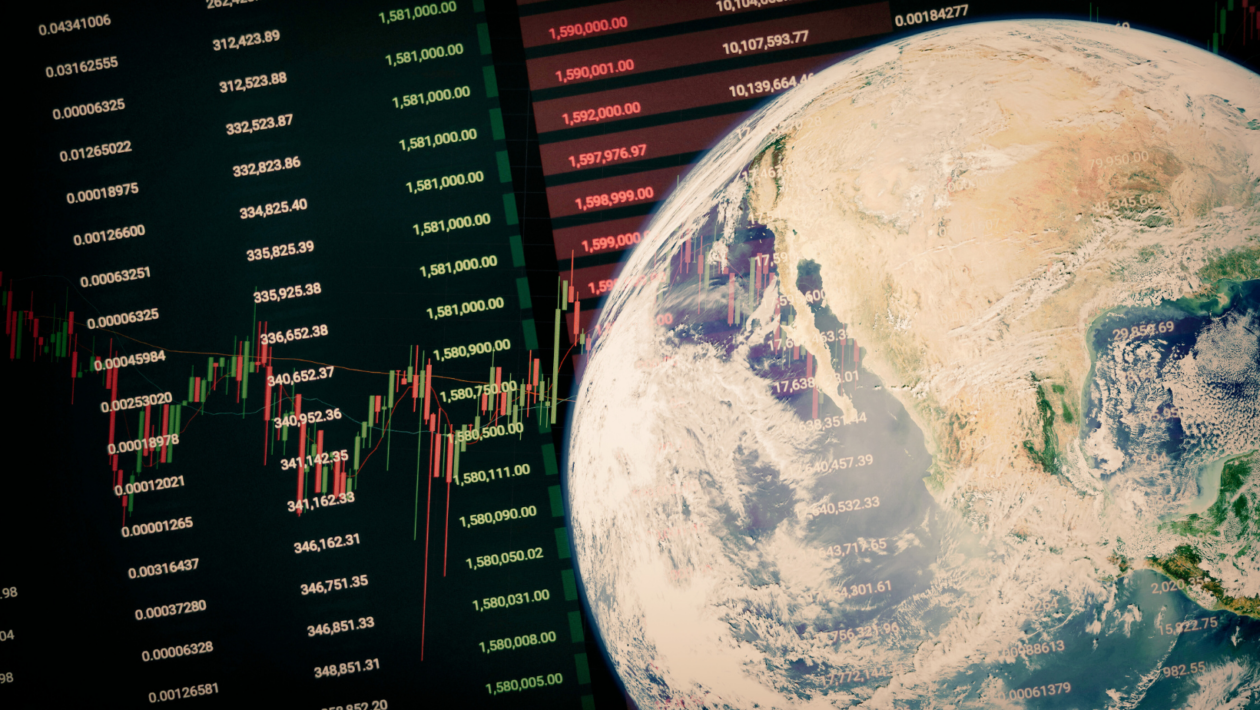Two powerful forces are competing to determine our financial future. It’s not Wall Street vs. Main Street, Democrats vs. Republicans, or even China vs. the West.
Instead, how we store, send and spend our money in the years to come will be shaped by one of history’s fiercest contests: closed vs. open systems.
Governments around the world must choose which side they want to favor. Will we embrace fair, free and fast? Or stick with unjust, costly and slow?
To understand the fault line running through our global financial system, we have to see the tectonic clash that has shaped the internet itself.
A quarter century ago, Microsoft’s encyclopedia, MSN Encarta, was poised for domination. It had vast corporate distribution, a powerful brand, and an army of paid editors to ensure quality content. But this paywalled garden of knowledge is gone. Its 62,000 articles (limited to subscribers or customers) could not compete with Wikipedia’s open-source model, which now gives everyone access to nearly 7 million entries.
Speed, responsiveness and innovation are hallmarks of open systems. So is direct, unmediated stakeholdership. Throughout history, open systems tend to outcompete closed ones. When given a choice, people prefer free enterprise over central planning, democracy over dynasty, and networks over hierarchies. Consumers do, too. A big reason for the success of Airbnb is the freedom customers enjoy to choose their own hosts — and the powerful platform it gives to entrepreneurs. On your last flight, did you wait in line at the airport taxi stand, or did you use Uber or Lyft?
Openness is intrinsic to the internet. When researchers set the first protocols in 1974, they based it on interoperability and decentralization. Open, shared, scientific discovery became part of the web’s DNA.
The result? By bringing the marginal cost of data dissemination to zero, information flourished. Virtually the entire sum of human knowledge is available free to everyone on the planet.
It’s hard to overstate what a monumental achievement this is. Yet the project of the internet remains incomplete.
Because even though data now moves around the world securely, instantly and for free, money does not.
Would you wait several days and pay $10 to send a text message overseas? What if Gmail users couldn’t e-mail Yahoo users? You might think the system is broken.
Sure, payment apps give the feeling of fast. But it’s like putting a maglev train on an old railway: Account balances still take days to update. Meanwhile, try paying a Zelle user via Venmo.
For core financial services like sending money to loved ones back home, wire transfers and cross-border payments, high fees, long delays and lack of access remains the norm, not the exception. In countries with rampant inflation, workers struggle to preserve their pay. Meanwhile, 1.7 billion people lack basic banking services.
We’re running a 21st century economy on financial rails built in the 1970s. We have toll gates and speed bumps, not a monetary superhighway.
The imperative for a more open financial system is clear. Thanks to the emergence of blockchain technology, it’s also feasible. We can make the movement of money as easy, secure and fast as text messages. It’s within reach to turn every low-cost, mobile device into a secure payment endpoint, dramatically expanding financial inclusion.
This revolutionary promise faces two major risks.
The first is the technology’s ugly adolescence. Blockchain was conceived as a peer-to-peer network that could crack the code on a timeless problem of counterparty trust. Yet much of its mission has morphed into a crypto casino.
We’ve seen this movie before. The early internet was a cesspool of spam and scams; “www” stood for “world wide wait.” But from the dot-com bust arose a more mature set of innovators, and as dial-up gave way to broadband, the public began to see and use the web as vital public infrastructure.
Likewise, in the wake of Sam Bankman-Fried’s fraud conviction, the hype he personified has given way to a quieter era of utility. Digital assets on open, public blockchain networks are lowering remittance costs, delivering corruption-resistant humanitarian aid, and making cross-border payments as easy as cross-border emails.
The second risk is a policy reflex that turns targeted skepticism into blanket suffocation. Open systems are particularly vulnerable to this phenomenon.
Anyone who wants to start a podcast today needs just a mic and an internet connection. In its infancy, though, the idea of giving broadcast powers to millions scared regulators; there was talk of requiring Federal Communications Commission licensing. Thankfully, the open model prevailed and today we have a flourishing podcast ecosystem.
The same tensions are playing out in the case of blockchain technologies, as well as with artificial intelligence and autonomous vehicles. Instead of working to ensure that the United States becomes a global leader in these strategically important arenas, some Washington policymakers would rather stamp them out.
From the advent of democracy itself to blogging and blockchain, open systems have always come with both heady promises and serious risks. Democracy is messy; X (Twitter) is frequently accused of not doing enough to thwart trolls — yet few of us yearn for a return to monarchy or a corporate media monopoly.
Innovation that massively decentralizes power can seem scary at first. But it’s also at the heart of democracy and modernization.
To maximize public utility and minimize risk, we should proceed cautiously with open systems, especially when they involve public safety or people’s money.
Our goal should be to strengthen, not smother, the emerging open system of finance. To bring benefits to millions, we should support its leap from proverbial dial-up to broadband. Governments can help by insisting on stringent standards for consumer protection, illicit funds and financial stability.
Throughout history, open systems have brought outsized benefits to those who embrace them. By setting clear, tough rules that ensure responsible innovation, governments can help ensure that the open evolution of finance has a bright future.





